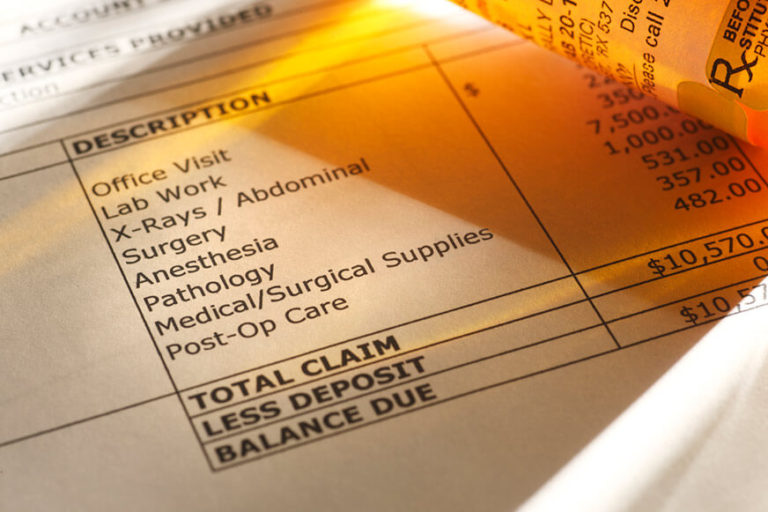Medical Treatment at Accident Scenes in St. Louis, MO

If you are bleeding or have an obvious injury, paramedics will assess your condition and, if needed, transport you to the hospital for treatment. In many cases, the injuries are not as obvious. The stress of the accident and adrenaline in your body immediately after the crash may “hide” some of your symptoms, leading you to believe you are not badly injured. In addition, bruising and swelling can occur during the hours following the accident so you end up feeling worse later.
It is surprising how many people will refuse medical treatment at the scene of an accident and go home. Only to end up at the emergency room a few hours later. The reasons I have heard range from lack of health insurance and fear of medical bills too. “I thought it was just the shock and my pain would improve after a while.”
In most situations, the pain will increase in the hours or days following an accident. The majority of medical professionals agree that most pain after an accident occurs 48-72 hours after the collision. That’s right, two to three days after the actual accident. In order to rule out more serious injuries, and decrease the pain and suffering after the collision. It is essential to immediately ask to be taken to the closest emergency room.
Medical Attention
Another important reason to seek medical attention immediately following the accident is the fact that insurance companies will attempt to minimize your injuries because you failed to seek treatment. They will argue, albeit wrongly, that your pain is not related to the accident at all but maybe from a pre-existing condition. Or perhaps from something that happened after the accident. Their logic is that people who are injured will seek medical care right away. Since you did not seek medical care right away, you were not really injured. As you can see, it does sound logical. But reality and human nature do not support this argument. If you believe there is any chance you have suffered an injury, you will better support any future claims by immediately seeking medical care to document your complaints and injuries.

Asking for an Interpreter
It is normal to be shaken up if you’ve been in an accident. Even if you speak conversational English, you may not be familiar with the terminology used by the police, paramedics and doctors, and the insurance company. If you do not understand, ask for an interpreter. Do not sign any paperwork or agree to a settlement in your case unless you fully understand the terms and conditions.
Medical Treatment after the Accident
We have all been there; we feel pain and discomfort yet don’t seek medical care because we hope that the symptoms will go away by themselves. (It’s just a stiff neck, right?) We do not wish to be perceived as that person who runs to his doctor for every minor thing. Also, many people who are struggling financially are concerned about how medical bills will be paid. If you’ve visited the ER or had any procedures done in the past few years, you know exactly how expensive treatment can be. It can easily push a family with limited income to the brink of financial disaster.
Insurance companies love people who suffer silently. Why? Well, there are objective and subjective injuries in every motor vehicle collision. Subjective injuries are injuries where victims complain to friends and family about how they feel (“my neck hurts,” “my back hurts,” “I have throbbing headaches”), but they never see a medical provider document the symptoms and complaints in their medical chart. Documented injuries are objective. When a licensed medical professional sees the victim and reviews the symptoms and any test results. His or her medical findings are recorded in your medical records. These medical records may then be submitted as evidence in your case – basically, the doctor is an independent expert so your medical records become evidence of your injury.

At the doctor
When you see your doctor, make sure to tell him every detailed symptom. Tell even if you aren’t certain all the symptoms are related to the accident. This way all your complaints will be in your medical chart. It is very important to follow your doctor’s advice. Take the medications you are prescribed. If they don’t work for you or you have an adverse reaction, contact the doctor to discuss other options. Then attend all scheduled appointments, including tests and physical therapy if ordered. Why? If you do not, the insurance company will try to use your unattended appointments against you. Two very strong arguments from their side that I have heard. (1.) You would have been healed long ago had you followed your doctor’s orders. (2.) If you were really in pain you would not have missed your appointments.
Insurance companies will NEVER compensate you fairly for your subjective injuries. They have no reason to do so because they know you will have a very hard time proving subjective injuries in a court of law. Again, their stance is, an injured person seeks medical attention.
Schedule Your Consultation Today
Fields marked with an * are required
"*" indicates required fields


